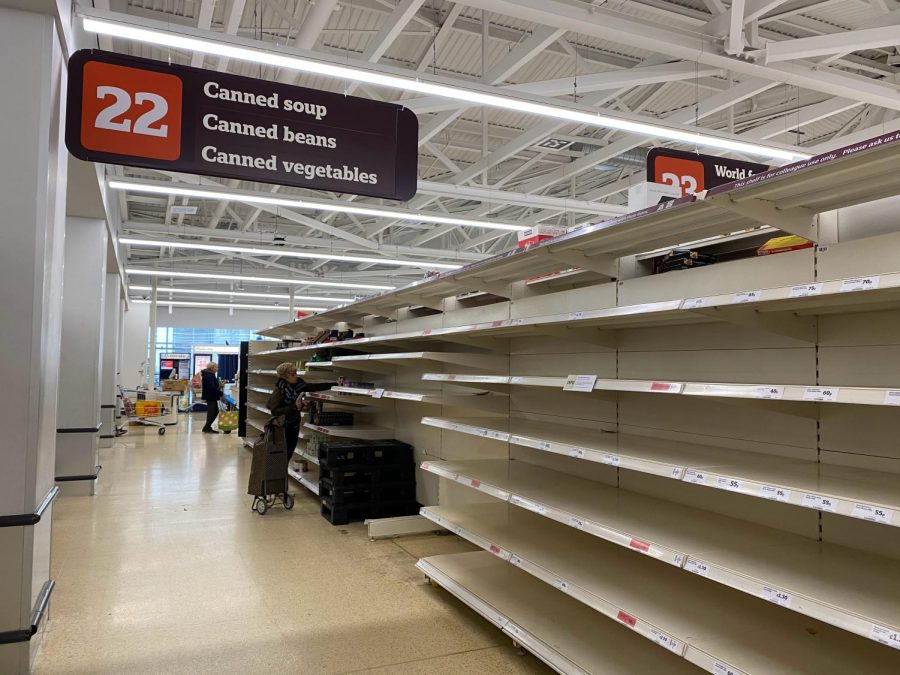An Upcoming Food Shortage?
How would this affect low-income families?
May 4, 2022
A month ago, President Joe Biden warned Americans about an impending food shortage coming to America within the next few months. However, many experts say there won’t be a significant food shortage in the United States. Instead, you might see a few empty shelves at your local grocery stores, much like at the beginning of the pandemic. A handful of factors influence the strain on the global food supply and rising prices, such as the war in Ukraine. These issues threaten to negatively impact low-income families and countries already facing food insecurity. However, there are ways to cope with these rapidly growing issues.
The war in Ukraine has put a lot of strain on the global food supply, as well as fertilizer and energy costs. Russia and Ukraine are some of the top food producers globally, making up around 50% of all fertilizer production, distribution, and sales. They are famously known as the bread basket of Europe and make around 30 – 40% of the world’s supply of wheat. However, Ukraine has effectively banned many exports since the initial invasion from Russia, including several staple foods such as wheat and grain. All of these issues trickle down to fertilizer prices skyrocketing, the already hurting farmers of America having to compensate for these costs, and consumers having to pay higher prices for the demand of goods.
The United States may experience shortages in meat, grains, dairy, and eggs. These goods are staples of many working-class families that cannot afford expensive or luxury goods. Long before the pandemic, many US families suffered from food insecurity, rising unemployment levels, and rapidly growing grocery prices. Inflation was already at an all-time high for gas, energy, and food as a drawback from the ease of the pandemic. These prices are comparable across the world. Smaller countries, dependent on exports from Russia and Ukraine, are more likely to experience food shortages in a much more severe rate than the US.
You might be able to prepare for these shortages by stocking up on essential goods, like canned and other non-perishable foods. You can also visit your local food bank or government for assistance. In addition, many people claim that starting a personal or community garden is a great way to fight food shortages. For example, you can plant fruits and veggies and buy chickens for eggs. However, these may not be readily achievable, especially in colder climates or larger areas. It is worth noting that obviously growing a garden takes time that you may not have. These also may only be temporary fixes or unreliable resources.
Sources:
- https://www.youtube.com/watch?v=K6knVq8OfgY&t=631s
- https://www.youtube.com/watch?v=8KI4A9UECSA
- Here’s why food shortages are unlikely to occur in the U.S.
- https://www.11alive.com/article/news/verify/will-russia-ukraine-conflict-create-food-shortage/85-2a2bea86-44f2-4ec4-a4ae-dbd8a227f559
- https://www.politifact.com/article/2022/apr/18/looming-food-shortages-probably-not-us/
- https://www.cbpp.org/research/food-assistance/number-of-families-struggling-to-afford-food-rose-steeply-in-pandemic-and
- https://parade.com/1332615/jessicasager/food-shortages-2022/
- https://www.worldbank.org/en/topic/agriculture/brief/food-security-update
Demetria Slyt is a Dakota Student Opinion Writer. She can be reached at [email protected].


